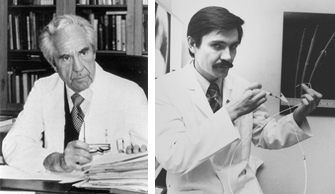

In 1994, Professor Thomas F. Lüscher founded the Foundation for Cardiovascular Research (FCR) in Basel. For the past 24 years, FCR has supported many clinicians and scientists in their research endeavors, and FCR has also enabled many of them to conduct their research in Zurich.
FCR has built an international reputation for itself. Because of this its reputation of conducting high quality research, FCR has been able to secure federally-supported grants, private foundation funding, and has been the recipient of donations from grateful patients and the community. In principle, FCR’s longevity is reliant on the generosity of its investors and donors.
Now based at the Zurich Heart House and affiliated with the University Zurich, FCR has proudly enabled over 20 cardiologists and scientists to train at the faculty of medicine at the University of Zurich. From these professionals, most of them eventually received a professor position. FCR is sponsoring three professor positions at the University of Zurich, specifically in the fields of heart failure, arrhythmias and vascular biology.
FCR has largely contributed to the advancement and expansion of the clinical services in the area of rhythm disturbances, heart failure and echo-cardiology. Adapting to better suit the needs of the patients and the healthcare professionals was the underlying mission of these contributions.
Historically, the University of Zurich has been taking a leading position in research and medical progress in the field of cardiovascular medicine and surgery culminating with Åke Senning and his significant contributions to cardiac surgery including open-heart surgery and cardiac transplantation and Andreas Grüntzig who conducted the first balloon angioplasty worldwide in 1977.

Åke Senning (left) and Andreas Grüntzig
Due to Prof. Lüscher and his team’s reputation of providing quality patient care and conducting cutting-edge research, the foundation has been the recipient of annual gifts from grateful patients and their families.
It is with high hopes and expectations that the FCR will be able to continue this tradition of innovative research to improve the field of cardiovascular medicine.